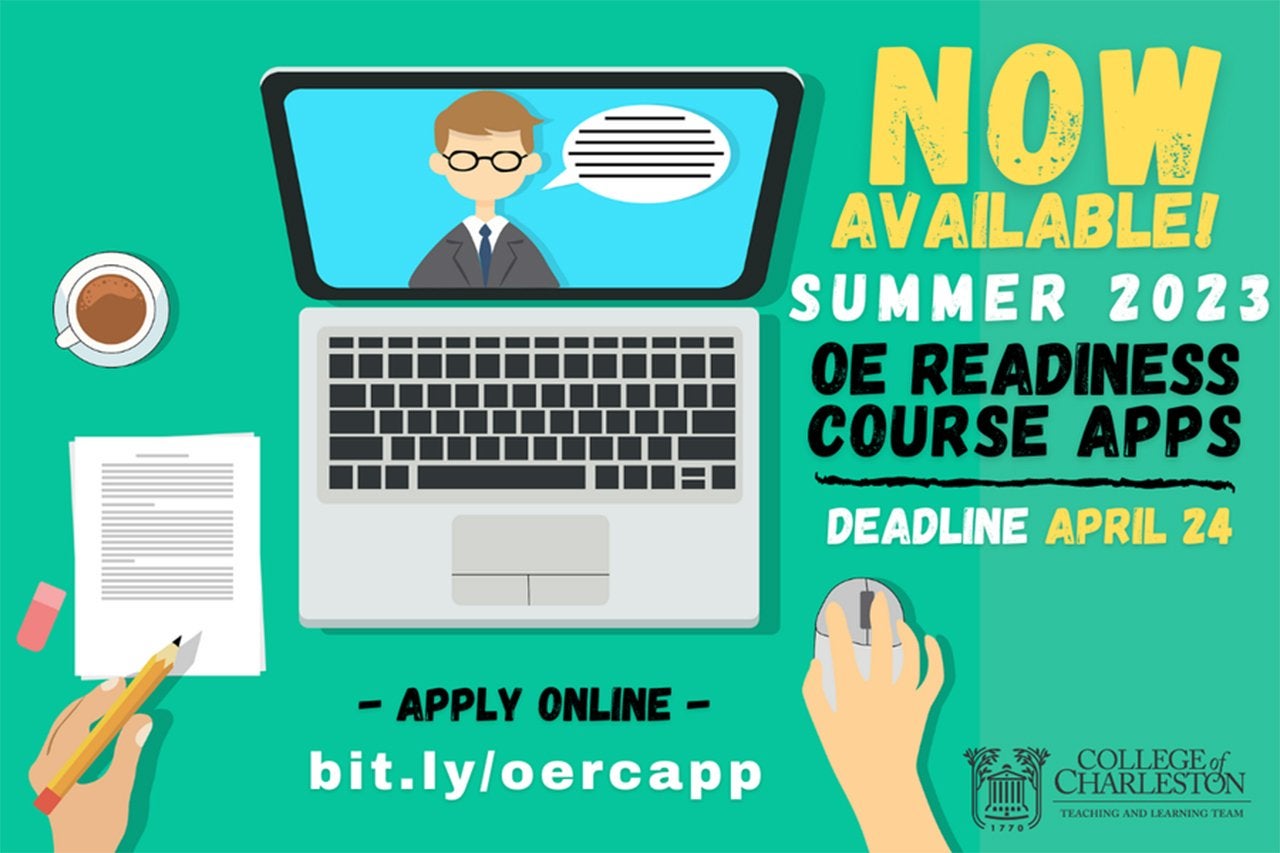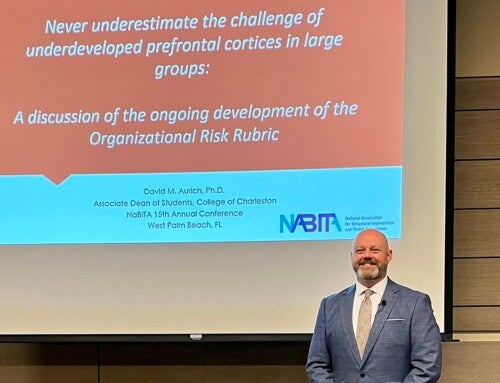Interested in learning more about online education? Then the summer 2023 Online Education (OE) Readiness Course through the Teaching and Learning Team (TLT) has got you covered.
Traditionally offered every spring, summer and fall as one of the prerequisites for teaching online at the College of Charleston, the OE Readiness Course is a seven-week, asynchronous online faculty development program that covers both the pedagogical and technological aspects of online education. The course will run June 28–Aug. 18, 2023, for the summer session.
RELATED: Learn more about the Online Education Readiness Course.
“The College of Charleston is committed to cultivating a learner-focused culture that furthers the academic experience of students,” says Chris Meshanko, OE training and development coordinator with the TLT. “In addition to cultivating the technological skills needed for creating, managing and facilitating a successful online course, faculty will explore instructional strategies that construct and facilitate a learner-centered approach to distance education. Another benefit of the course is that they experience distance education as a student.”
Approximately 60% of all faculty have completed the standard OE Readiness Course since it was first offered in 2012.
To apply to the Summer 2023 OE Readiness course, which runs from June 28 to Aug. 18, 2023, complete the application on TLT’s blog by April 24, 2023. Before applying, faculty should review the policies set forth by academic affairs and the Online Education Steering Committee. Applicants will be notified of their acceptance status by May 8, 2023.
To apply to become an OE Faculty Mentor, complete this application. Questions may be directed to Chris Meshanko.
Here are five reasons that faculty should apply now for the Summer 2023 OE Readiness Course:
1. Receive guidance and feedback from experienced faculty mentors.
The main difference between the standard OE Readiness Course and the self-paced OE On-Demand Express Readiness Course is mentor support. In the standard OE Readiness Course, you are assigned a mentor who has completed the OE Readiness Course and taught multiple online and/or hybrid courses. Your mentor will provide you with guidance and personalized feedback during every step of the course design process.
2. Leverage the comprehensive Course Planning Document (CPD) to design your course.
Throughout the standard OE Readiness Course, you will use your CPD to map out every element of your course – syllabus, communication strategies, learning outcomes, course pathway, activities and assessments, and content delivery. And, your mentor and colleagues will offer ideas and support along the way.
With research-based lessons covering course design, communication, community building, assessment and content delivery, the course allows participants to spend time in each module, formulating content for their personal courses.
3. Start building your online or hybrid course in OAKS.
As you work through your CPD, you will be asked to build elements of your course in an OAKS development course created just for you. Not only will this allow you to become more familiar with some of the tools and features in OAKS, but it will also allow you to easily copy these components into your real course when you’re ready.
In addition to working on the assignments and readings, participants in the OE Readiness Course are expected to log into the course in OAKS at least four days a week to stay current with coursework, as well as to regularly communicate with their mentors and interact with their peers on the discussion board.
4. Learn tips, strategies and tools from your colleagues.
Throughout the standard OE Readiness Course, you’ll have the opportunity to engage in whole-class and small-group discussion on best practices relating to pedagogy and course design. The best part is, you’ll be able to revisit these discussions, for ideas and resources, forever.
5. Ask questions and get answers.
Whether you have an OAKS question, pedagogical question, course design question or really any question, your course facilitator, mentors and colleagues are always quick to provide an answer or direct you to the best resource(s). The goal is to help you feel comfortable and confident designing your online or hybrid course.




